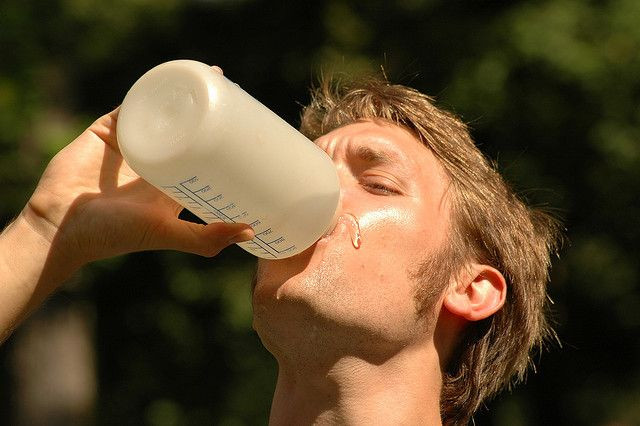BPA Disrupts Sperm Production In Mice, Could Be Linked To Decreased Fertility In Men

BPA, or bisphenol A, is a chemical component of plastic that is often found in plastic food containers, plastic bottles, and thermal receipts. Now, a new study shows a direct link between this chemical and disrupted sperm production in mice. BPA disrupts the delicate DNA interactions needed to create sperm, say the Washington State University researchers.
Sperm counts have declined over the past few decades worldwide, scientists warn. In Denmark, more than 40 percent of young men have sperm counts in the infertility or decreased fertility range. Reports from other European countries, Japan, and the United States all tell the same story. Sperm counts, though, may be only the tip of the iceberg. Studies also document an increase in abnormalities of male reproductive organs, including undescended testicles, hypospadias (when the urethra opening is misplaced on the penis), and increased incidence of testicular cancer — a constellation of male disorders referred to as testicular dysgenesis syndrome. This syndrome is thought to result from exposure, during early development, to estrogens. BPA is an endocrine disrupting chemical with estrogenic activity. Could descending sperm counts and testicular dysgenesis syndrome be linked to early exposures to this chemical?
The Study
Hunt and her colleagues gave newborn male mice oral doses of BPA. They also exposed another group of mice to the synthetic estrogen, ethinyl estradiol, which is used in many formulations of hormonal contraceptives (such as birth control pills). They also exposed another group of mice to a placebo. After dosing all the mice, the researchers removed their testes and performed an analysis of their sperm. The team discovered that the sperm of BPA exposed mice did a poorer job of meiosis, the process by which cells combine the genetic information of their parents. As a result, more sperm died.
"We have a window of just a few days and we permanently change the way that the testis makes sperm in the adult," says Hunt.
Importantly, the study looked at three different mice populations: one outbred like humans and two common strains that are inbred. While the researchers noted a "very strong effect" on outbred mice and one inbred strain, they found no effects on the other inbred strain.
Hunt worries that sperm counts will continue to go down with each exposed generation. "We've seen effects over the course of several decades," she said. "What about several generations? Infertility is becoming more common. Are we creating the perfect storm?"
Source: Hunt P, Vrooman L, Oatley J, Griswold J, Hassold T. Estrogenic Exposure Alters the Spermatogonial Stem Cells in the Developing Testis, Permanently Reducing Crossover Levels in the Adult. PLOS Genetics. 2015.
Published by Medicaldaily.com



























